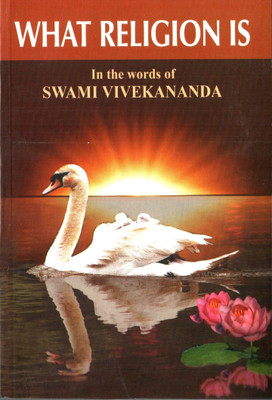What Religion is in the Words of Swami Vivekananda(English, Paperback, Vivekanand Swami)
Quick Overview
Product Price Comparison
The book explores the meaning of religion and reflects upon its true purpose in an individualŌĆÖs life. Summary Of The Book Swami Vivekananda is widely credited for reviving Hinduism in India in the 19th century. He also took Hinduism, particularly the traditions of Vedanta and Yoga, to the western world. He wrote extensively about the philosophy of religion throughout his life. The book presents his inquiry into the true meaning of religion, highlighting the core of his philosophical thought, and touching upon various aspects of spirituality. It begins by presenting VivekanandaŌĆÖs idea of a universal religion. It also introduces the foundations of the Vedanta philosophy, which formed the substance of all his major religious discourses. It goes on to explain four distinct approaches to attain self-realization. Towards the end, he discusses some of the greatest teachers of the world. The book has been introduced by eminent novelist Christopher Isherwood. About Swami Vivekananda Swami Vivekananda was one of the greatest spiritual leaders of the 19th century. Only few of his writings could be published during his lifetime. This includes major philosophical texts Karma Yoga and Raja Yoga. A number of books provide a compilation of his lectures on religion that he delivered around the world. He also wrote poetry; Kali The Mother, My Play Is Done, and The Living God are among his most well-known poems. Most of VivekanandaŌĆÖs writings explored religious thoughts and practices in the Indian context. He was the foremost proponent of the ancient Vedanta philosophy of Hinduism. He also encouraged nationalism and the idea of one universal religion for everyone. He wrote in Bengali and was particular to use simple, lucid expressions to convey his ideas. Born as Narendranath Datta in 1863, Calcutta, Vivekananda was raised in an aristocratic Bengali family. He showed a strong inclination towards spirituality from an early age. While at college, he became deeply influenced by Swami Ramakrishna and went on to become his devout follower and disciple. After the death of his guru, he became a wandering monk, traversing all corners of India and abroad. He most famously represented India at the Parliament of the World's Religions held in Chicago in 1893 and is credited for bringing Hinduism to the forefront of world religions.


